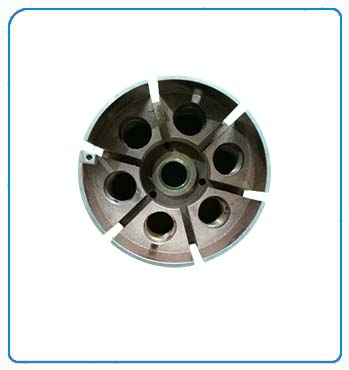Nozzle Block

A Nozzle Block is a crucial component in various engineering systems, particularly those involving fluid dynamics, such as fuel injection systems, hydraulic systems, and spray nozzles. Here's a detailed description of a typical nozzle block:
Construction and Design:
- Material: Nozzle blocks are typically made from durable materials such as stainless steel, brass, aluminum, or engineering plastics, depending on the specific application requirements.
- Port Configuration: The block features multiple ports or channels designed to accommodate the inlet and outlet connections for the fluid or gas being dispensed.
Applications
- Fuel Injection Systems: In automotive engines and other combustion systems, nozzle blocks are used to mount fuel injectors, delivering precise amounts of fuel into the combustion chamber for efficient combustion.
- Spray Systems: In industrial spray systems for applications such as cleaning, coating, cooling, and agriculture, nozzle blocks serve as the mounting base for multiple spray nozzles, ensuring uniform coverage and distribution.
- Hydraulic Systems: In hydraulic machinery and equipment, nozzle blocks may be used to mount hydraulic nozzles or jetting elements for fluid power applications.
- Chemical Dispensing: In chemical processing and dispensing systems, nozzle blocks provide a platform for mounting dispensing nozzles or atomizers for accurate and controlled delivery of chemicals.
A Nozzle Plate is a vital component in fluid dispensing systems, providing a stable mounting platform for multiple nozzles and ensuring precise and consistent fluid flow and distribution in various engineering applications.